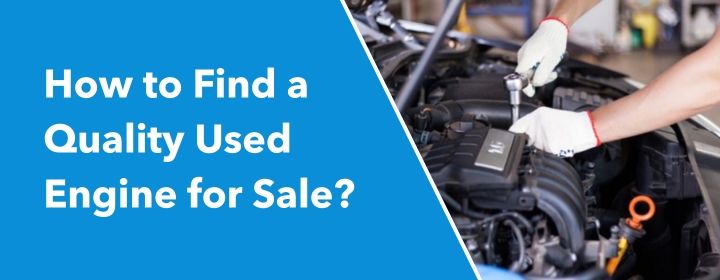
How to Find a Quality Used Engine for Sale?
Are you trying to find quality used engine of sale? But need assistant. Here, you will get all the guidance to find used engine for sale.
At first, you will get to learn how to find, then how to choose, then how to purchase with the most trusted firm through: Car Engine Guru.
Guide to Find a Quality Used Engine for Sale
1. Don’t trust the first listing you see
Facebook Marketplace, Craigslist, eBay—whatever. Half of them are junkyards trying to push engines that have been sitting in the rain for five years. Do not, wire money to some random dealer “swears it runs great.” If they can’t give you mileage, VIN, or compression numbers, move on.
2. Mileage is king (but not the only thing)
Under 100k miles? Great. 150k? Could still be solid. But what matters more is how it was maintained. I once pulled a Honda engine with 180k that looked cleaner inside than some 80k mile engines I’ve seen. Ask for service records. If they don’t have them, at least check for oil sludge under the cap. That’ll tell you a lot.
3. Always check the VIN and donor vehicle
Good sellers will give you the VIN of the car it came out of. Run it. If it was totaled in a flood, walk away. Flood engines are nightmares—corrosion everywhere, hidden damage, you’ll regret it.
4. Compression test > seller’s word
If you’re buying local, do a compression test right there. Don’t just crank it and “listen.” Numbers don’t lie. If you’re buying online from a salvage yard, ask for a video of the engine running or a compression test slip. If they get sketchy about it, skip them.
5. Warranties are worth paying for
Some junkyards will give you a 30/60/90-day warranty. Take it. It’s usually only like $100 more, and if the engine’s trash, you’re not totally screwed.
6. Know your swap compatibility before buying
Don’t assume “same model, same year = perfect fit.” Manufacturers love changing tiny little things. Mounts, sensors, ECU differences. I’ve seen guys buy engines that “should work” but needed $500 more in parts to actually run. Cross-check part numbers.
7. Red flags to run from
- Seller can’t tell you mileage.
- Oil pan is cracked or welded.
- Water in the oil.
- Engine is “already pulled and ready to go” but sitting outside on dirt. (Translation: no way to test it.)
- Price is way too low compared to others. If everyone’s asking $1500 and this dude’s selling his for $600? Nope.
Want to Make a Purchase with Car Engine Guru?
- Find the part first: Just hit the search bar, punch in your car make/model/year, and scroll until you see the part that matches. If you don’t see it right away, filter by Quality used engine type. Saves you a headache later.
- Check the details: Double-check the part numbers. I almost ordered the wrong alternator because it looked “close enough.” Nope. The numbers matter. Cross-check with your VIN if you have to.
- Add to cart: Standard stuff here. Nothing fancy. But the cart doesn’t always update instantly — refresh if it looks empty.
- Account vs. Guest: You can checkout as a guest, but honestly, make an account. That way you can track shipping without digging through emails. It takes 30 seconds.
- Payment: They take cards, PayPal, all the usual. I went with PayPal just in case something went sideways. The site redirected fine, no glitches.
- Shipping: Watch the options. The default is usually standard ground. If you actually need it fast, change it. Costs a bit more but worth it if your car is sitting dead in the driveway.
- Confirmation: You’ll get the email. Check spam if it doesn’t show up in a couple minutes.
The Conclusion
Hope, you have found this post helpful to find quality used engine for sale. This guide will also helpful for purchasing the item that you are looking for. After all reading, if you are still confused how to buy any auto part, reach us directly.
